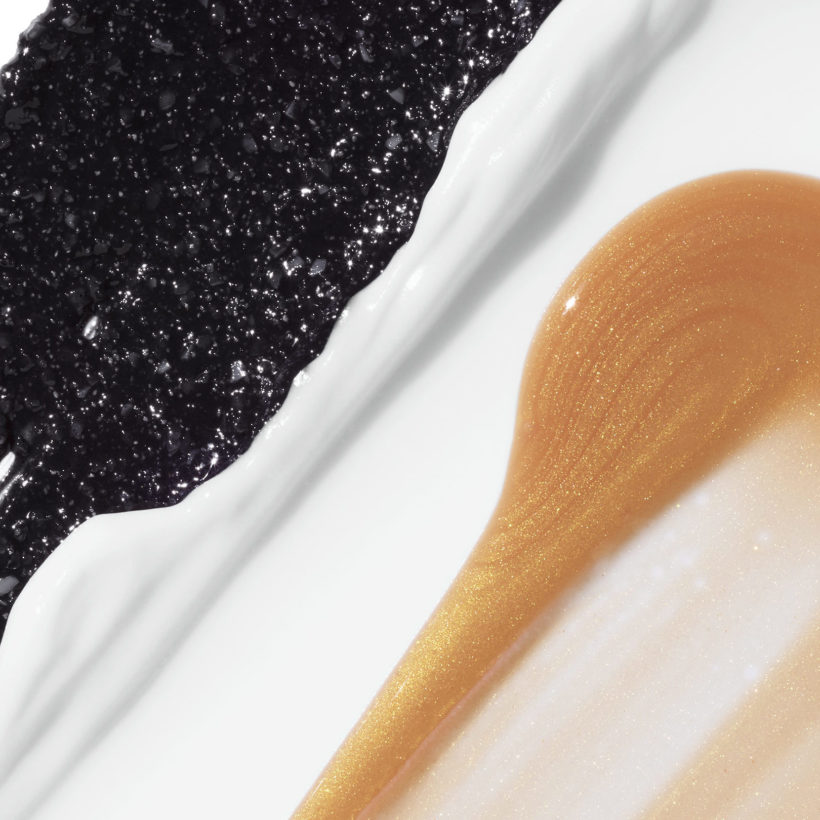Chances are, enzymes are an ingredient you have spotted in your skincare arsenal. These natural exfoliators work wonders at improving cell turnover and improving clarity and brightness. Want to learn more? You’re in the right place. Here, we spoke to the experts about why enzymes are so important in skincare, which ones to use, and how to best incorporate them into your routine.
What are enzymes?
While we have enzymes in the body, in the terms of skincare products, we are talking about plant-derived enzymes. These enzymes are a type of protein that is known as biological catalysts. This means they have the ability to speed up processes. In our skin, that’s exfoliation.
“Enzymes in skincare formulations tend to be from fruit and vegetable sources and they play a fantastic role in aiding exfoliation,” advanced aesthetic doctor Dr. Preema Vig confirmed.
Enzymes speed up the natural process of skin renewal that takes place in the top layers of our skin. “Enzymes help to resurface and regenerate the skin,” advanced facialist and aesthetician Abi Oleck explained. “They dissolve the ‘glue’ between the cells in the top layer of the skin by breaking down the protein bonds that are found between the cells that bind them together,” she added. “Enzymes loosen and lift away dead skin cells revealing newer, fresher and more radiant skin,” Dr. Vig noted. Subsequently, this also improves the skin cell turnover to support newer, radiant and more glowing skin.
The benefits of enzymes
Enzymes speed up the natural process of skin renewal that takes place in the top layers of our skin.
This acceleration of skin cell renewal is highly beneficial for the skin. “The benefits of using enzymes regularly are removal of superficial skin cells and encouraging desquamation (the shedding of the outer layers of the skin),” Oleck highlighted. “Enzymes also help reduce pore congestion and pigmentation by helping to break down the clusters of melanin,” Oleck added.
Plus, these benefits can be reaped by those even with highly sensitive skin. “Enzymes are a gentle alternative to exfoliating the skin and don’t cause irritation unlike some exfoliating acids (for example, AHAs or BHAs),” Dr. Munir Somji said.
The enzymes you need to know
Papaya extract: Like all enzymes, Papaya dissolves the keratin protein layer of the skin. “Papaya helps promote skin healing and collagen formation, which allows for healthy-looking skin and skin elasticity,” skincare expert Chrystianna Filis said.

Bromelain: Extracted from pineapple, this enzyme has many benefits. “It has antioxidant and antibacterial properties and also helps to reduce redness and soothe the skin,” Dr. Vig noted. “Pineapple promotes healthy skin as the fruit contains vitamin C and beta carotene. These antioxidants can help improve overall skin texture, minimize skin damage from sun and pollution exposure whilst also helping to reduce signs of wrinkles,” Fillis added.
Blueberry: Not just an excellent breakfast ingredient, blueberry enzymes are a skincare hero. “Blueberry enzymes have anti-aging properties and brighten the skin whilst softening sebum,” Dr. Somji said.
Pumpkin: One of the most popular enzymes spotted on skincare ingredient lists, pumpkin enzymes can benefit all skin types. “This antioxidant boosts collagen production and speeds up skin cell renewal.” Dr. Somji clarified.
Actinidin: Derived from kiwi, mango and banana extracts, these enzymes will make a real difference to your skin. “These fruits help with dirt, bacteria, and dead skin cells from accumulating on the skin surface with their natural chemical exfoliating and anti-bacterial benefits. In addition, they simultaneously moisturize the skin to allow the skin to rebuild its strength,” Fillis commented.
How to use enzymes in your skincare regime
While enzymes are naturally derived they are considered active ingredients thanks to their exfoliating properties. Subsequently, it’s best to proceed with caution if you have sensitive skin and start slowly when introducing new ingredients to your routine. “I recommend using products containing enzymes every two-three days after you have slowly introduced them into your own bespoke skincare routine, as this allows your skin time to get used to them,” Dr. Somji advised.
Enzyme ingredients can normally be found in either toner or serum-based products. Use an enzyme-based toner by dampening a cotton pad with the solution and swiping over the face. For a serum, apply a few drops all over the face and decolletage. Remember to always wear a full spectrum SPF after applying any exfoliating ingredients as your skin will be more sensitive to the sun.
We only recommend products we have independently researched, tested, and loved. If you purchase a product found through our links, Sunday Edit may earn an affiliate commission.









